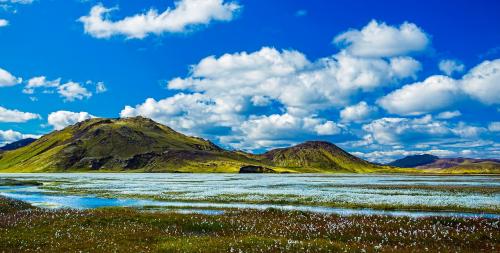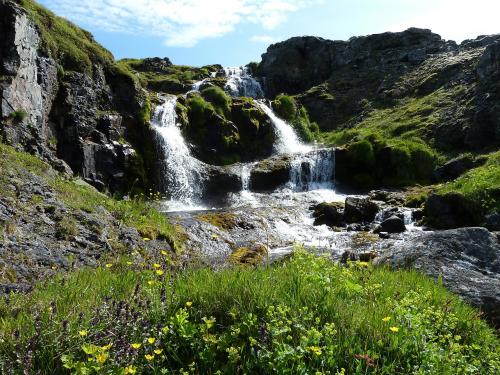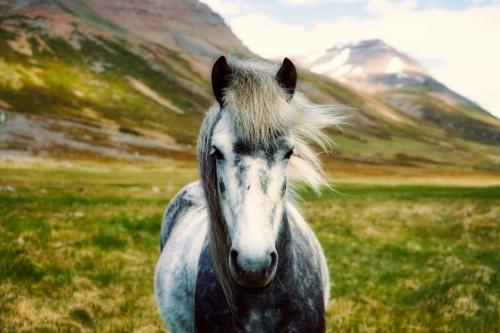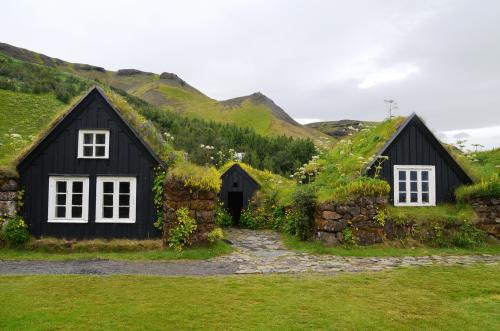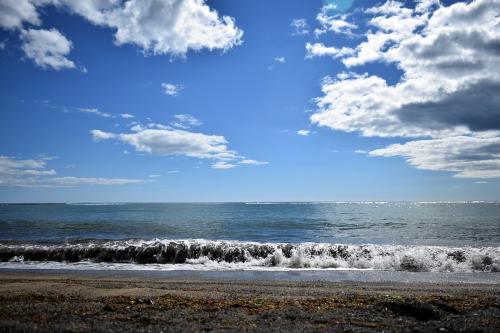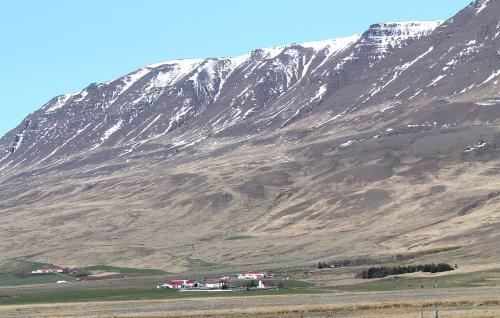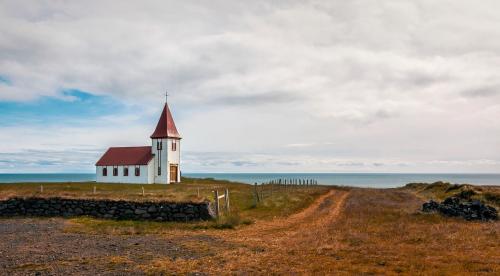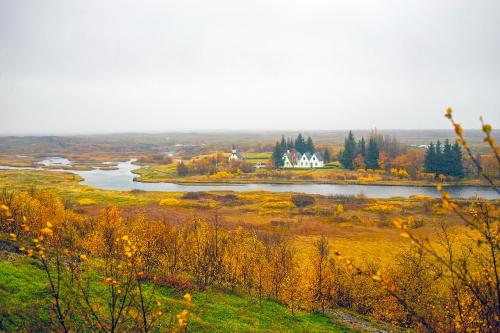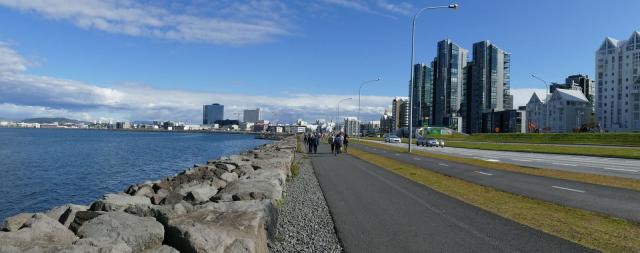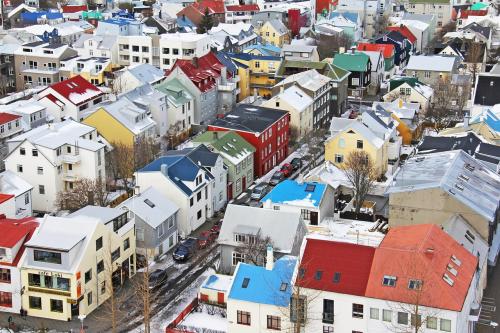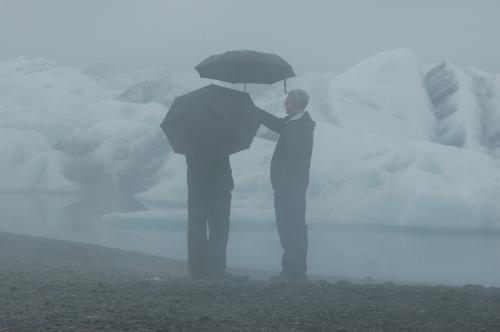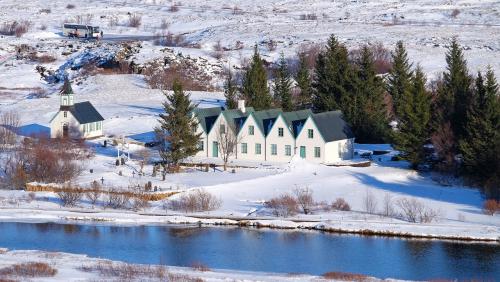Seasons in Iceland
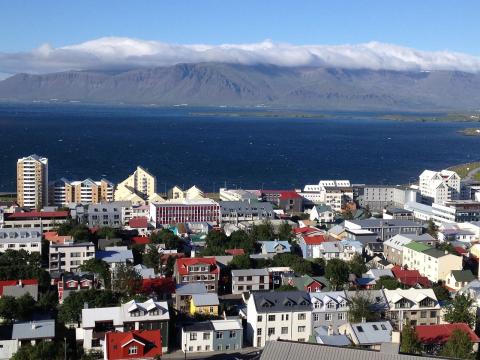
Iceland is a region, full of contrasts. It becoming clear when you take a look at its natural views and landscapes: majestic glaciers, active volcanoes, hot wells, waterfalls and mysterious caves, green meadows with lush grass and rivers full of fish.
The large part of the land here is covered with glaciers. Iceland could be a severe subarctic country, but here there is a warm Gulf Stream. Gulf Stream is a warm Atlantic current, which give to this land mild winter and short cool summer. In spite of the fact that strong winds blow almost all the year, the climate here is considered to be healthy and useful.
Seasons
Contents:
Spring in Iceland
Spring in Iceland is a time, when nature comes alive. Despite the fact, that drifting ice-floes accumulate not far from the banks, whales begin their mating games. The temperature of the air on the islands is about +7-10 °C (45-50 °F), flocks of birds return from the South, colors are becoming brighter. Melwater from the glaciers feed the falls. In the spring waterfalls are gaining strength and attract a lot of tourists. Weather remains extremely unstable and changeable.
The start of the spring here coincides with the Day of beer (March 1st). For a long period of time (almost 75 years) it had been prohibited to drink alcohol. But now it is in the past, and the Day of beer is widely celebrated.
Climate of the Spring Months
| March Max average t°: +4 °C (39 °F) Min average t°: -1 °C (30 °F) Water t°: +5 °C (41 °F) Sundial in the day: 4 hours Rainy days: 12 days Precipitation: 60 mm (2.4") |
| April Max average t°: +6 °C (43 °F) Min average t°: +1 °C (34 °F) Water t°: +5 °C (41 °F) Sundial in the day: 5 hours Rainy days: 12 days Precipitation: 55 mm (2.0") |
| May Max average t°: +10 °C (50 °F) Min average t°: +4 °C (39 °F) Water t°: +6 °C (43 °F) Sundial in the day: 6 hours Rainy days: 10 days Precipitation: 40 mm (1.6") |
(Reykjavik)
Spring Holidays
March 1 - The day of beer
April 5 – Easter
April 23 – The day of girls in Iceland
May 14 – The day of President
Summer in Iceland
The start of summer in Iceland is a period of white nights. According to the long-term supervision, the warmest summer month here is July. In this period the temperature in Iceland is about +15-20 °C (59-68 °F). July and august are considered to be the season with a lot of tourists. This period is the most suitable for visiting Blue lagoon. Blue lagoon is a famous geothermal spa with hot mineral springs.
In Iceland there are no trees. But here you can find a huge hothouses and greenhouses. Hothouses and greenhouses are heated by underground warm. One of such hothouses is a park Edam. It is very popular place among tourists and Icelanders. Despite the meager vegetation, the island inhabited by rare birds, which always come back in Iceland in the summer.
Climate of the Summer Months
| June Max average t°: +12 °C (54 °F) Min average t°: +7 °C (45 °F) Water t°: +8 °C (46 °F) Sundial in the day: 6 hours Rainy days: 10 days Precipitation: 40 mm (1.6") |
| July Max average t°: +14 °C (57 °F) Min average t°: +9 °C (48°F) Water t°: +9 °C (48 °F) Sundial in the day: 5 hours Rainy days: 10 days Precipitation: 50 mm (2.0") |
| August Max average t°: +14 °C (57 °F) Min average t°: +8 °C (46 °F) Water t°: +10 °C (50 °F) Sundial in the day: 6 hours Rainy days: 12 days Precipitation: 55 mm (2.1") |
(Reykjavik)
Summer Holidays
June 7 - The day of seamen in Iceland
June 17 - Proclamation of the Republic of Iceland
June 21 – Midsummer
Autumn in Iceland
September in Iceland is still can be called «summer» month. In October the weather is getting worse. This occurs because of the fact that cyclones pass through the ocean. Dark period comes in November. The sun is located very low, that is why the duration of light day is no more than 5 hours.
In this period of the year (from September to April) tours and excursions in Iceland are becoming cheaper. Meanwhile, in this time of year nature of the country is beautiful and majestic. The vast snowfields are covered with tons of volcanic ash. Volcanoes erupt directly under the ice. It looks really great. In addition, the autumn in Iceland is rather quite time of the year.
Climate of the Autumn Months
| September Max average t°: +11 °C (51 °F) Min average t°: +6 °C (43 °F) Water t°: +9 °C (48 °F) Sundial in the day: 4 hours Rainy days: 13 days Precipitation: 65 mm (2.6") |
| October Max average t°: +7 °C (45 °F) Min average t°: +3 °C (37 °F) Water t°: +7 °C (45 °F) Sundial in the day: 2 hours Rainy days: 14 days Precipitation: 95 mm (3.7") |
| November Max average t°: +4 °C (39 °F) Min average t°: 0 °C (32 °F) Water t°: +6 °C (43 °F) Sundial in the day: 1 hours Rainy days: 14 days Precipitation: 80 mm (3.1") |
(Reykjavik)
Autumn Holidays
The Icelanders in this period of the year celebrate the following holidays:
October 24 – The day of winter
Winter in Iceland
Generally, there are no polar nights in Iceland. However, in the dark period the Sun is located at the height of few degrees. This period continues from mid-November to early February. In the winter in Iceland you can see the Northern lights. You can also enjoy the view of giant glaciers, active volcanoes and fascinating fjords.
On December 24 Icelanders celebrate Yule. Yule is a holiday of midwinter, an analogue of our Christmas. This holiday have long history, it came from distant pre-Christian times. On this day Icelanders decorate Yule tree, drink hot mulled wine and put under the Yule tree gifts for elves. Scandinavians pay homage to the gods. They burned in a furnace ritual log of wood. It is a tribute to the turn of sun from winter to summer.
Climate of the Winter Months
| December Max average t°: +2 °C (36 °F) Min average t°: -1 °C (30 °F) Water t°: +6 °C (43 °F) Sundial in the day: 0,3 hours Snowy days: 15 days Precipitation: 80 mm (3.0") |
| January Max average t°: +2 °C (36 °F) Min average t°: -2 °C (28 °F) Water t°: +5 °C (41 °F) Sundial in the day: 1 hours Snowy days: 14 days Precipitation: 90 mm (3.5") |
| February Max average t°: +3 °C (37 °F) Min average t°: -2 °C (28 °F) Water t°: +4 °C (39 °F) Sundial in the day: 2 hours Snowy days: 12 days Precipitation: 65 mm (2.6") |
(Reykjavik)
Winter Holidays
December 31 – January 1 – New year. Icelanders born bonfires sing and dance around them. Some people dress up in costumes of elves and trolls.
January 23 – Torrablout. The holiday is associated with symbolic sacrifice to the gods, feasts and lots of good food.
January 27 – The day of Sunny Coffee
February 14 - St. Valentine Day
February 22 – Women’s day in Iceland
 Seasons of the Year
Seasons of the Year 